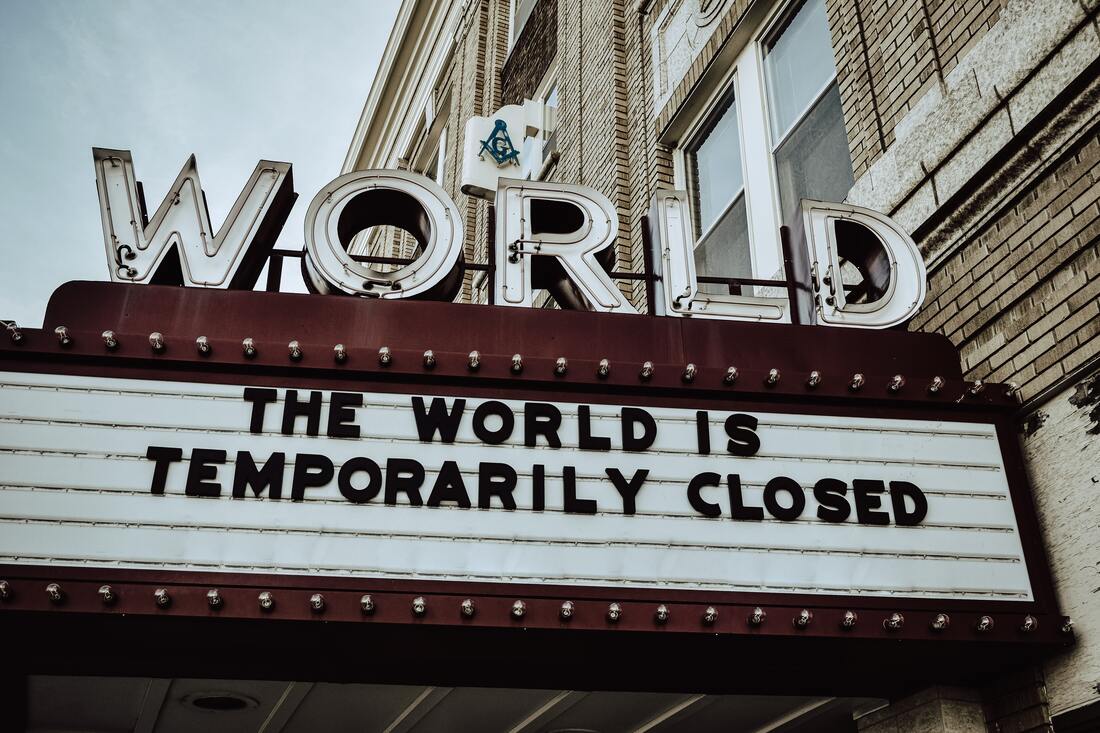|
As I reflect on the month of July, there are a few things that we know with a great deal of certainty. First, what we were afraid would happen in South Africa, has happened. We were kidding ourselves if we didn’t expect the economic disparities that exist in our country to eventually reach a breaking point. We just didn’t know was what the catalyst would be.
Secondly, we know that, under pressure, both the worst and the best in human nature can rise to the surface. Robin Wright of the The New Yorker, details what the worst can look like: ‘forty thousand businesses ---including stores, banks factories, and post offices—were vandalized or burned; damage to the economy was estimated in the billions of dollars.’ This will continue to be a significant challenge for an already stretched economy that is reeling under the impact of Covid-19. But the best was remarkable: People gathered for prayer, and then they went to work. Food parcels were collected and distributed. Churches united for prayer and support, and then spread out to meet needs. The territory was stressful and uncharted, but many provided support where they could. Finally, although what lies before us will surely stretch us to what may seem like breaking points, there is one other thing that we can know with certainty. God can do more than we can possibly comprehend: Now to him who is able to do immeasurably more than all we ask or imagine, according to his power that is at work within us, to him be glory in the church and in Christ Jesus throughout all generations, for ever and ever! Amen. (Ephesians 3:20–21 (NIV). I am trusting that God is working, even in the midst of what looks like chaos and despair. Maybe this is the moment that we have been waiting for and that God will unite his people in ways that are ‘immeasurably more than we can ask or imagine’ to bring the hope of the gospel to the communities of our nation?
0 Comments
On 16 June, 1976, a demonstration in Soweto led mainly by high school students was met with a brutal crackdown by police that resulted in scores of deaths, setting off a wave of protests and violent conflicts that rumbled across South Africa. This month marks the 45th anniversary of that day—commemorated as Youth Day--and it is important to reflect 45 years later how young people are doing across South Africa.
What we see defines a country filled with young people in trouble. “NEETs” is a term used to describe young people between the ages of 15-24 who are not in employment, education or training. Widespread concerns about the large numbers of youth in this situation centre on two main issues: the perpetuation of poverty and inequality, including intergenerational poverty, and the possible implications of a large “idle” youth population for risk behavior, social cohesion and the safety of communities. The large number of NEETs in South Africa is linked to underlying problems in the education system and the labor market. Only about half of young people in their early twenties have successfully completed grade 12.[1] We could easily see NEETs as someone else’s problem, but we know at the core of our being that this is not right and the issues cannot be ignored. The focus for our work in Scripture Union is on school children as we introduce them to Jesus and promote a lifelong journey of discipleship. But what happens to the NEETs? Is it enough for us to introduce young people to Jesus but leave them trapped in poverty and hopelessness? Instead, is this not the moment for churches and people of faith to engage the status quo on behalf of the children of our Nation? We won’t have another 45 years to get this issue sorted out. Join us throughout the month in weekly podcasts, weekly ‘newsbites,’ and other posts that we trust will start a rallying cry on behalf of our children that brings change (www.su.org.za.) It’s been 45 years too long. . . Believing that the children of our nation deserve better…. [1] Organisation for Economic Co-operation and Development. Youth Not in Employment, Education or Training (NEET) (indicator). 2017. Accessed 6 June 2017: https://data.oecd.org/youthinac/youth-not-in-employmenteducation-or-training-neet.html. It would have been nice to have left 2020 behind and marched triumphantly in 2021 with a return to pre-Covid normalcy. But that dream is still a fantasy. In South Africa, churches are still limited in attendance to small gatherings and social distancing measures are locked in place. This is challenging. We love to be together as God's people in worship. The joy of corporately seeking God and enjoying Him and each other is something special that is sorely missed as we struggle to keep infection rates at bay. But there is no lost time for followers of Jesus. COVID-19 did not escape his notice and he is active, calling his people to follow after him in new and exciting ways. And although how we gather has changed drastically, there are options before us that are exciting and new, stretching boundaries and opening up new opportunities that are perfectly crafted for vibrant, gospel infused ministry that takes advantage of the context before us. So what does this look like? 1. Go deep, not wide. It is harder to gather big groups, but small groups are where the action is anyway. Spend more time with a few people. Set up groups of 3 or 4 for prayer, accountability, mentoring, and discipleship. 'Iron sharpens iron' and the next year or two is the perfect time to strengthen these relationships. My wife, Leslie, and I oversee two communities of life groups that are still meeting and pushing each other toward Jesus. By focusing our efforts on these life group and community leaders, we have the privilege of 'doing life' with over one hundred young people in life groups that won't be able to attend church regularly but still want to be discipled and will be active disciplers. And these deep relationships might be the best thing to rise from the ashes of COVID-19. 2. Go short, not long. Many of our meetings are still on a digital platform, which is an amazing blessing but also a significant challenge. I spend many days on back to back Zoom calls and the last thing I want is another call in the evening. Keep the digital gatherings short and focused. Use them for discipleship moments that are fun and extraordinary. We find that podcasts are a helpful way to open up new opportunities to push some of these boundaries. Find a podcast on a topic that opens up discussions around current events and how to navigate our surroundings as followers of Jesus. 'This Cultural Moment' is a podcast by Mark Sayers and John Mark Comer that lends itself perfectly for this. You can pick 4 podcasts around a theme, select a passage of scripture for each backdrop and discuss how the passage and podcast intersect. Everyone comes having already listened to the session and the discussion is usually fun and challenging as you consider Scripture in light of some of the current events and trends highlighted in the podcast. How did the early church find its way in times of uncertainty? It is certainly important to find out. And at one hour max, you can finish with a time of prayer feeling like you could go on for longer . . . but won't. And after you finish the fourth session, you can decide when to begin the next series. 3. Find rhythms, not ruts I have found that living through the uncertainties and challenges of COVID-19 and its aftermath is stressful, to say the least. But learning how to navigate from a framework with focused goals is still better than just trying to get back to the 'way it used to be.' We tend to operate according to habits--routines that make it possible to move through the day without spending a lot of energy thinking about them. Now those moorings have changed and any new routines we set up will likely need to be re-examined along the way as contexts remain fluid. Lifestyle rhythms can incorporate goals that can be modified in an ever-changing environment. If the goal is relational growth, consider new tools to help you keep moving forward. Maybe a Whatsapp video call from your phone will work instead of sitting at your laptop on Zoom? Or instead of a coffee meeting sitting in a restaurant, maybe a takeaway walking through a park or along a scenic stretch of your city will work nicely? Your rhythm--spending the relational time together--can be established while the way it happens can be fluid to meet the context. And this is just one of many opportunities to make adjustments to rhythms without falling into the ruts of habits. Things are changing rapidly, so these rhythms serve as guidelines that can help to structure your activities in line with the goals you are looking to achieve. Maybe these ideas will help you think about 2021 with a little more excitement and expectation? I hope so... What are the some of the ways you are navigating life and the challenges before you? The New Year has started out in many ways just like the old year finished. In South Africa, we are in the middle of another lockdown that will likely last until February 15th--depending on how things go. Our infection rates are down, but schools are closed and there is a 9pm curfew in place, so our mobility and opportunities to gather are quite restricted. It is not a great start to the year, but it is what we have.
For Scripture Union South Africa, it means we are waiting for schools to open so we can meet with kids 'in person' again. Online engagements are helpful, but most of the country has little access to the digital world, so we wait. But we have been busy exploring a few new 'funding' options that we think are pretty exciting. The Reach Africa website has just launched branded clothing and accessories that are pretty 'lekker' (cool). Not only can you purchase quality clothing for a reasonable price, but every purchase supports our mission. Definitely Win-Win! Please check it out here--https://www.reachafrica.org/store.html How has your year started? |
AuthorTim-husband to Leslie, father to James, Mackenzie and William and follower of Jesus. Archives
August 2021
Categories
All
|
|
|
South Africa is an amazing country filled with incredible diversity. Our desire is to join with the local church to facilitate a movement of the gospel that engages poverty and inequality in a way that makes Jesus known and worshipped.
Copyright © 2003 - 2021 Reach Africa, Inc. All Rights Reserved.





 RSS Feed
RSS Feed